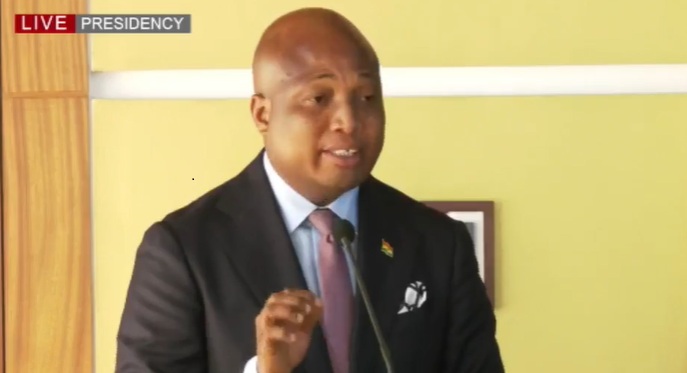The Chairman of the Operation Recover All Loot (ORAL) Committee, Samuel Okudzeto Ablakwa, has outlined ten key benefits of the anti-corruption initiative spearheaded by President John Dramani Mahama.
Speaking at the handover of the committee's report, Ablakwa emphasized the significant impact of ORAL in ensuring transparency, accountability, and the recovery of state assets.
1. Enhancing Transparency and Accountability
Ablakwa noted that ORAL has "deepened transparency and accountability," making government officials more conscious of their responsibility. "It has really increased public awareness about the need to protect state assets," he stated.
2. Saving Government Bungalows from Demolition
ORAL intervened to prevent the demolition of 50 government bungalows. "We received distress calls from public servants who said people had showed up—so-called private developers—to demolish their bungalows," Ablakwa disclosed. The properties belonged to ministries including Foreign Affairs and Gender, Social Protection.
3. Preserving Northern Development Authority Lands
ORAL’s swift action helped protect prime state land near the U.S. Embassy from unauthorized takeover. "A private developer moved in overnight on the eve of the President’s inauguration to erect a wall, dividing the property into half. We promptly called National Security, and they moved in," he explained.
4. Preventing Unauthorized Takeovers of State Assets
The committee worked with National Security to halt attempts to illegally change number plates of state vehicles. "We were able to save a good number—hundreds of these vehicles," Ablakwa said.
5. Resolving the Du Bois Centre Dispute
ORAL played a crucial role in preventing a clash over control of the Du Bois Center. "We immediately called National Security, and we have now asked that the factions meet with the new Minister for Tourism to resolve the matter," he reported.
6. Securing Agricultural Lands at Cantonments
The committee intervened to stop the destruction of agricultural mechanization lands at Cantonments. "We have been able to save large portions—about 80% has been preserved," Ablakwa announced, adding that politically exposed persons had hurriedly developed some sections.
7. Preventing Demolition of Ghana Museums Staff Quarters
ORAL's intervention halted the demolition of staff quarters at Osu Kweku Hill. "Thanks to our efforts, at least the demolition has been halted, and the President and his advisors will decide what should happen," he said.
8. Providing a Peaceful Channel for Citizens to Report Looting
The ORAL initiative provided a structured avenue for citizens to report cases of looting. "Imagine what would have happened if citizens, instead of reporting through ORAL, had taken the law into their own hands. Transitions in Ghana tend to be acrimonious," he pointed out.
9. Encouraging Voluntary Refund of Looted Assets
ORAL also created a platform for persons of interest to return state assets. "Quite a number of persons of interest have reached out, seeking an opportunity to refund and return what belongs to the Ghanaian people," Ablakwa revealed.
10. Attracting International Forensic Support
He said the initiative has drawn interest from global forensic experts willing to assist in tracing looted funds hidden offshore. "Some have said it will not cost us anything—they may just ask for a small percentage of recovered assets," he noted.
Ablakwa concluded by highlighting the financial implications of ORAL’s work. "If we are successful in recoveries, we can retrieve as much as $20.49 billion from 36 cases, plus $702.8 million from land assets—amounting to $21.19 billion," he declared.
The ORAL Committee was established on December 18, 2024, as a key anti-corruption initiative of President Mahama’s administration, dedicated to recovering looted state assets and promoting transparency in governance.

